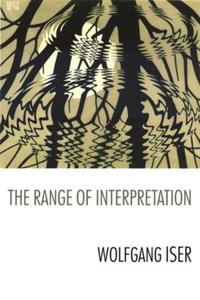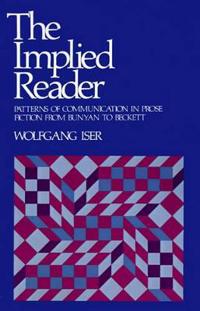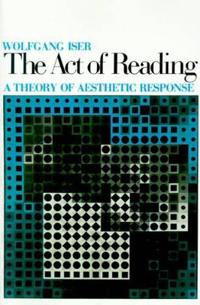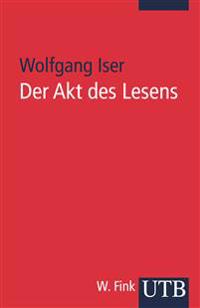Staging Politics: The Lasting Impact of Shakespeare's Histories (Inbunden)
avWolfgang Iser
ISBN: 9780231075886 - UTGIVEN: 1994-01-13The Range of Interpretation (Pocket)
avWolfgang Iser
ISBN: 9780231119030 - UTGIVEN: 2001-10There is a tacit assumption that interpretation comes naturally, that human beings live by constantly interpreting. In this sense, we might even rephrase Descartes by saying: We interpret, therefore we are. While such a basic human disposition makes interpretation appear to come naturally, the forms[...]
Implied Reader (Pocket)
avWolfgang Iser
ISBN: 9780801821509 - UTGIVEN: 197808Like no other art form, the novel confronts its readers with circumstances arising from their own environment of social and historical norms and stimulates them to assess and criticize their surroundings. By analyzing major works of English fiction ranging from Bunyan, Fielding, Scott, and Thackeray[...]
The Act of Reading (Häftad)
avWolfgang Iser
ISBN: 9780801823718 - UTGIVEN: 198002Iser examines what happens during the reading process, and how it is basic to the development of a theory of aesthetic response, setting in motion a chain of events that depends both on the text and the exercise of certain human faculties.[...]
Wolfgang Iser
ISBN: 9783110245516 - UTGIVEN: 2012-05This book is the first in-depth monograph on one of the most celebrated German literary theoristsof the 20th century. Via an accessible analysis of Iser's complete English and German writings, this study explains his acclaimed reception theory and connects the famous notions of 'blanks' and the 'imp[...]
Prospecting: From Reader Response to Literary Anthropology (Pocket)
avIser, Wolfgang, Aser, Wolfgang
ISBN: 9780801845932"An important transitional book, usefully summarizing the past and thoughtfully mapping out the future of a significant critic's theoretical project." -- Modern Philology."There is a much greater emphasis on the reader's function as 'performer' of the text in Prospecting than in Iser's other books. [...]
The Fictive and the Imaginary: Charting Literary Anthropology (Pocket)
avIser, Wolfgang
ISBN: 9780801844997"Iser is an influential figure, and aficionados will welcome the comprehensive exposition he provides here." -- Terence Cave, TLSThe pioneer of "literary anthropology," Wolfgang Iser presents a wide-ranging and comprehensive exploration of this new field in an attempt to explain the human need for t[...]











